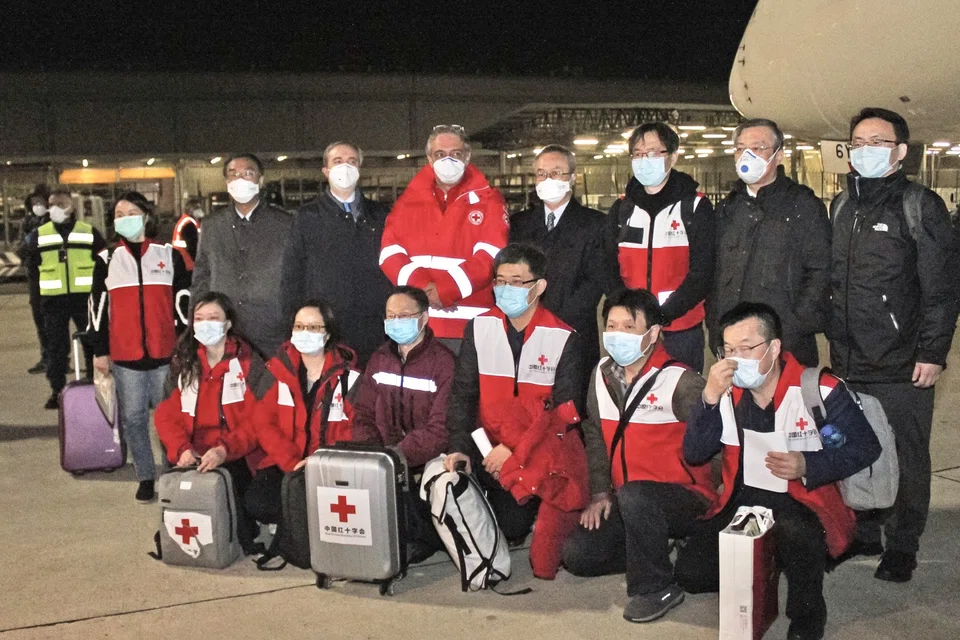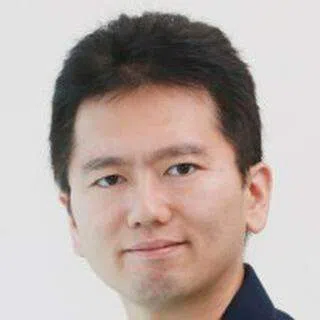Amid pandemic chaos, will China seize the chance to shape the global narrative?
In part due to the US being caught on the back foot in handling Covid-19, China now has a lead on gaining diplomatic ground and shaping the global narrative through "pandemic diplomacy", says Zaobao correspondent Edwin Ong. For a start, China has provided medical supplies to countries and regional organisations such as Pakistan, Laos, Thailand, Iran, South Korea, Japan, Italy and the African Union, in a strong show of camaraderie through actions.

China's battle against the Covid-19 pandemic has entered a new phase of guarding against imported cases. China is now able to free up more resources to lend a helping hand to countries badly hit by the coronavirus, demonstrating "pandemic diplomacy" through exporting medical resources and sharing its experience fighting the pandemic with other countries.
Chinese foreign ministry spokesperson Geng Shuang showcased China's "results slip" at a regular press conference on 17 March, saying that China continues to provide much-needed medical supplies to countries and regional organisations such as Pakistan, Laos, Thailand, Iran, South Korea, Japan, Italy and the African Union.
He also emphasised that as the world's largest producer of protective suits and medical masks, China was ramping up its production capacity of medical supplies so as to ensure the "security and stability of global industrial and supply chains".
China stepped up production and is now producing 120 million masks on a daily basis - six times the original number of masks produced - making it the main mask supplier for various countries around the world, including the US.
"We also encourage and support Chinese manufacturers of medical facilities, medicine and protective gear in increasing production to meet the needs of foreign commercial procurement while ensuring domestic supply, which is another contribution to the global fight against the pandemic," he added.

However, China's advantage in manufacturing medical supplies and equipment has become another point of contention between China and the US this week. Hawkish White House trade advisor Peter Navarro said on 16 March at an interview with CNBC that he is currently preparing an executive order for US President Donald Trump to sign that would help relocate medical supply chains from China and other countries to the US.
"Most Americans don't know [that] 97% of antibiotics come to this country from China [and] 80% of the active ingredients in pharmaceuticals come from China and India, he said. "The essence of the order... is to bring all of that home so that we don't have to worry about foreign dependency."
In response, Geng Shuang said on 17 March, "The formation and development of global industrial and supply chains are determined by market forces and companies' choices. As such, it is unrealistic and insensible to try to sever them or even trumpet 'shifting' or 'decoupling' theories."
He continued, "Such an attempt is by no means the right prescription amid the pandemic, still less a viable way out for domestic problems the US faces. It will only cause greater damage to innocent American people."
According to reports, China produced 20 million masks on a daily basis domestically prior to the outbreak, accounting for half of the world's supply. Following the escalation of the outbreak and its gradual resumption of work, China stepped up production and is now producing 120 million masks on a daily basis - six times the original number of masks produced - making it the main mask supplier for various countries around the world, including the US.
"European solidarity does not exist. That was a fairy tale on paper. I have sent a special letter to the only ones who can help, and that is China." - Serbian President Aleksandar Vučić
China has the US's slow response to the outbreak to thank for the high profile it has received recently in diplomacy.
Amid the outbreak's continuous escalation, plunging stock markets and pressure from public opinion, the US government simply has too much on its plate. It only barely managed to engage in a war of words with China over the source of Covid-19 and China's methods employed in combating the virus. These actions have also given China more opportunities to showcase its diplomacy amid the pandemic.
This week, Chinese state media filed high-profile reports on three countries seeking assistance from China within a single day. For instance, on 15 March when Serbia declared a state of emergency due to the Covid-19 outbreak, China Central Television (CCTV) reported Serbian President Aleksandar Vučić saying, "European solidarity does not exist. That was a fairy tale on paper. I have sent a special letter to the only ones who can help, and that is China."

Spain and the Philippines also sought technical support and medical resources from China that same day. In a phone call between Spanish Foreign Minister Arancha González Laya and Chinese State Councilor and Foreign Minister Wang Yi on 15 March, Spain said that it was facing a shortage of medical supplies and other challenges. It expressed the hope that China would provide Spain with medical supplies, and added that Spain wanted to learn from China through video conferences between their medical experts.
In a phone call between Wang and Teodoro Locsin Jr, Secretary of Foreign Affairs of the Philippines, the latter underscored that the Philippines was also "challenged by the epidemic and shortage of medical supplies and facilities", and hoped that "China could provide assistance and consider sending medical experts to the country".
Wang responded with generosity to both countries. To Spain, he announced that China would "provide Spain with a batch of emergency medical supplies in accordance with its needs". It would also "open up commercial channels for Spain to import urgently needed personal protective gears and medical equipment". China would also "consider sending a medical expert team at an appropriate time".
To the Philippines, Wang indicated that China would urgently provide medical supplies such as testing kits and protective suits and would actively coordinate the dispatching of medical experts.
Chinese President Xi Jinping had a telephone conversation with Italian Prime Minister Giuseppe Conte on the evening of 16 March at the latter's request. In the phone call, China expressed willingness in working with Italy to build a "Health Silk Road".

Through China's diplomacy during the pandemic, China's BRI proposal has also been pronounced "healthy". Chinese President Xi Jinping had a telephone conversation with Italian Prime Minister Giuseppe Conte on the evening of 16 March at the latter's request. In the phone call, China expressed willingness in working with Italy to build a "Health Silk Road". He said that by fighting Covid-19 together, the two countries would "deepen their traditional friendship and mutual trust and open up broader prospects in cooperation across the board".
With US leadership absent from the global spread of the Covid-19 pandemic, China has been able to demonstrate its capabilities and improve its image on the international stage. When the pandemic ends, will the face of international diplomacy change very drastically?



![[Photos] Fact versus fiction: The portrayal of WWII anti-Japanese martyrs in Taiwan](https://cassette.sphdigital.com.sg/image/thinkchina/3494f8bd481870f7c65b881fd21a3fd733f573f23232376e39c532a2c7593cbc)

